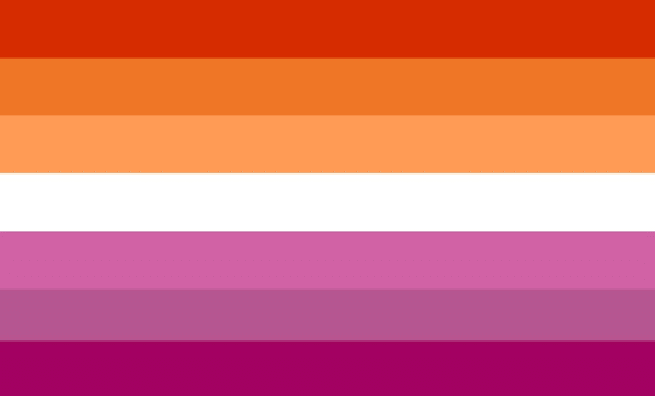Baby Dyke: Meaning, Identity and Community Usage
Terminology
According to WordSense dictionary, the term refers to a young lesbian that may still be in the process of coming out. Age is often a factor in using the terminology which typically is associated with college or school as there is a certain awkwardness associated with the process of becoming aware of one’s sexuality.
Baby dyke can be used to refer to someone fresh out of the closet, ready to fly, change their style, finally cut their hair, buy new things to wear, go to gay bars and be themselves without fear. These individuals are typically filled with fairly general ideas when it comes to dating girls.
To put it in perspective some baby dykes feel excited about their true identity early in life. They often come out early to parents and friends in college, but others wait decades to start living their authentic life.
A lesbian may be labeled a baby dyke in her 30’s, 40’s and even 50’s if she is just finding her sexuality. The word dyke has been re-appropriated as a positive term meaning assertiveness and toughness. So, it can also be a synonym for lesbian with the community affectionately using the terminology to address friend’s newness to the queer scene.
The term somewhat implies certain qualities for inexperienced girls, think wild and free when it comes to the gay dating scene.
Baby dykes can be transgender, nonbinary, and genderqueer as well as cisgender. The use of the term is not exclusive to AFAB people.
History
The origin of the term is not available. Some say the word baby refers to young, naive, and enthusiastic people whereas dyke can be traced back to the 19th century.
Baby dykes are new to the queer community, so they are also new to the language that is associated with being a lesbian. Whether the girl is a baby dyke or not is usually determined by their level of experience in the queer dating world.
Difference Between Baby Dyke and…
Bull Dyke – bull dykes are typically butch. They tend to wear manly clothing and cut their hair short. Baby Dykes can be butch, femme, bear, diesel, or any other variation. They are just starting in the lesbian community and learning the ropes as they go along. Sometimes butches may refer to young immature lesbians as baby dykes for their unsuccessful attempts at appearing more masculine.
Diesel Dyke – diesel dykes present as butch, drive trucks, love riding bikes, large vehicles, and are expected to be attracted to femmes.
Femme Dyke – femmes present in what they feel is a traditionally feminine way. Many baby dykes may meet the specs of being femme. There are those that experience awkwardness with their look and worry about not looking lesbian enough. They tend to fall to society’s typical knowledge of what being gay is and try to appear more butch at the beginning of their queer journey.
Flag and Symbols
Baby Dykes are fresh out of the closet. Pride is a new experience to them, and that is why many choose to carry an inclusive Pride Flag.
Some baby dykes are proud to show off the lesbian pride flag which is a brightly colored flag that has shades of pink that symbolize from top to bottom gender non-conformity, independence, community, unique relationships to womanhood, serenity, and peace, love, and sex, and femininity.
 Lesbian flag
Lesbian flag
There are lesbian flags that feature the words baby dyke in the middle line but they are not considered to be official symbols.
Showing Sexuality
Surely many baby dykes question how they should identify that they are queer. Interestingly enough there are several ways to show your preferences in any city in the world.
- The Handkerchief flagging code involves color-coded hankies in the back pockets of jeans to indicate whether the individual is dominant (left) or submissive (right), a hankie may also be worn on wrists or neck
- Nail Flagging code involves coloring nails with symbols and shapes
- Outfits featuring plaid, hemp, or jute code may give a sense of who you are
- Hairstyle flagging code
- Signing buttons, pins, other things with rainbows
Thinking ahead it is worth pointing out that flagging is much less categorical these days with people bending gender norms and breaking stereotypes.
Many lesbians weeks out of the closet choose to dive into gay worlds by attending dyke bars. A dyke bar is a bar or a club for gay females. It can be associated with a place that is a bit tough with butch patrons.
Am I a Baby Dyke?
If you are young, recently discovering your sexuality, and are new to the lesbian scene you may very well be a baby dyke. That said, if you are not that young, but are new to the world of wlw you may also be one.
If you are enthusiastic, free, open-minded, willing to learn and explore all things related to being a lesbian because you recently came out as one – you may be a baby dyke.
Pronouns
Baby dykes most often use she/her pronouns. Some who are just learning to be a part of the LGBTQ+ community may use they/them pronouns.
Most of the time it is best to share your pronouns first and ask what pronouns the person likes using.
